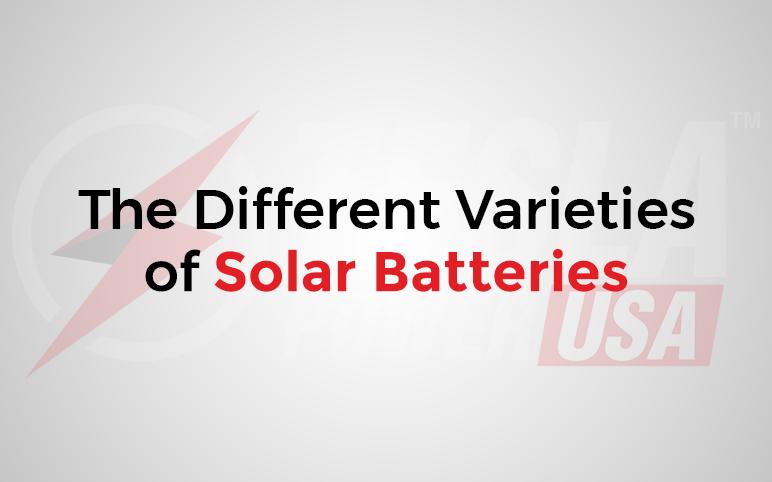When looking for rechargeable panels for your residential photovoltaic array, there are numerous aspects to consider. The battery packs you're searching for, as well as what you expect from it, are two
factors to bear in mind.
To assist you pick the proper backup battery for your photovoltaic system, we've subdivided the most prevalent energy storage systems.
The various types of rechargeable panels
Home solar installations are compatible with four different types of rechargeable batteries:
● Batteries made of lead-acid
● Lithium-ion batteries
● Batteries made of nickel
● Flow batteries
Every one of those battery management power solutions has its benefits and drawbacks. Let's take a deeper look at the benefits of each photovoltaic PV cell.
Batteries made of lead-acid
In the field of solar cells, lead-acid batteries are indeed a proven and reliable technique. For a long period, deep-cycle cells are often used to charge batteries - ever since the 1800s, in particular.
And it's due to their dependability that they've been able to stay in business.
Floating lead-acid batteries and closed lead-acid cells are the two major types of rechargeable batteries.
Pros:
Lead-acid batteries are the simplest and most cost-effective battery storage alternative. They are also trustworthy. They can also be simply disposed of and repurposed since the concept has been available
for a long time.
Cons:
● To function properly, inundated lead-acid batteries need airflow and upkeep, which raises the risk of the battery spilling. Since flooded fuel cells cannot be placed on their sides, this restricts how
they can be placed.
● They do have a low discharge capacity (DoD), requiring more frequent charging.
● They have such a shorter life expectancy - around 5 and 10 years - due to their shallow charge-discharge.
Ideal for:
Lead-acid batteries are ideal for off-grid photovoltaic panels or backup stored in the event of a power loss due to their dependability.
Lithium-ion batteries
EV makers understood lithium ion's promise as a battery storage technology as the adoption of hybrid cars grew. They immediately were among the most popular solar battery systems on the market.
Pros:
● Lithium-ion batteries nearly never need to be serviced.
● These also have a better battery energy content than lead-acid batteries, which means they can store more electricity in a narrow footprint.
● Lithium batteries have quite a prolonged lifecycle or duration, and most of them come with a 10-year warranty.
● Lithium-ion batteries have a higher self-discharge rate, which means you may utilize more of the electricity stored in the capacitor before it needs to be charged, resulting in longer longevity.
Cons:
● Lithium-ion batteries are now costlier than other super capacitors, which is one of their main drawbacks.
● Lithium-ion storage devices also have a higher likelihood of having accidents due to a phenomenon known as thermal overrun due to its composition. Nevertheless, if your battery is put correctly, the
chances of it catching fire are almost non-existent.
Ideal for:
Domestic solar installations benefit from lithium-ion batteries since they can store more electricity in a smaller space and allow you to utilize more of the power energy storage system, which is ideal
for lighting a home.
Batteries made with nickel-cadmium
Lead-acid and lithium-ion batteries are more widely used because of nickel-cadmium (Ni-Cd) cells. Ni-Cd batteries first originated in the late 1800s, but in the 1980s, they were given a redesign that
dramatically boosted the quantity of electricity they could retain. They're a popular choice in the aviation business.
Pros:
● The fundamental advantage of Ni-Cd cells is their long life.
● They're also capable of operating under high temperatures.
● They also don't necessitate complicated power management devices and are almost maintenance-free.
Cons:
● The fact that cadmium is exceedingly poisonous is the major disadvantage of Ni-Cd cells. Cadmium is prohibited in certain nations. This makes them difficult to get rid of.
● They're also susceptible to charge transfer, which reduces their battery life.
Ideal for:
Because of their endurance, Ni-Cd cells are useful for large-scale purposes such as utility thermal energy storage.
Flow batteries
Flow batteries are a relatively new energy storage device. Inside the battery, a water-based chemical solution circulates between two distinct compartments or reservoirs. Reactions that occur when the
battery is charged, allow the energy to be transferred and then released. These batteries are becoming increasingly popular.
Pros:
● Flow batteries offer a 100 percent self-discharge rate, which is one of their best features. This implies you can use the entire amount of energy contained in the cell without endangering its health.
● The battery's fluid is also fire-resistant, so you won't have to worry about heat dissipation.
● Flow batteries do have the greatest life span of any of the cells on this table, at three decades!
● They also have the added benefit of being low-maintenance.
Cons:
● However, flow batteries are higher priced than other forms of battery storage.
● They do have a limited capability relative to other rechargeable batteries, thus they must be huge to hold a significant amount of energy.
● They have extremely low charge-discharge frequencies, which necessitates their size to be functional.
Ideal for:
For large-scale applications, flow batteries are the best option. They have to be very huge to hold any significant quantity of energy with how they operate, which raises their cost. As a result, flow
batteries have yet to become a popular household choice.
How do you choose the correct type of solar battery for you?
A Li-ion battery is, in most circumstances, the best solution for a residential photovoltaic system. They can store more energy in a smaller space, transfer most of the energy they retain, and have
excellent efficiency. And they're the most prevalent; many solar firms will be able to precisely and safely install a lithium-ion panel cell.
If you're on a limited income, rechargeable lead-acid batteries might be your best bet. They've been around for a long time and are inexpensive.
Get in touch with Tesla Power USA today to explore your options and get the right battery backup for your home or office.






